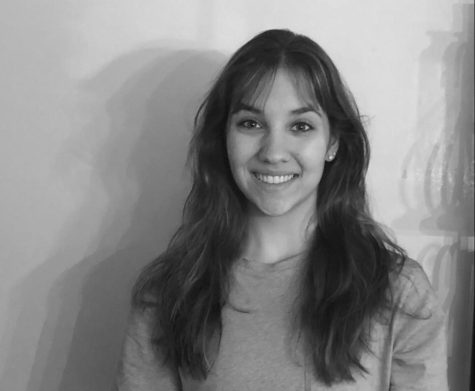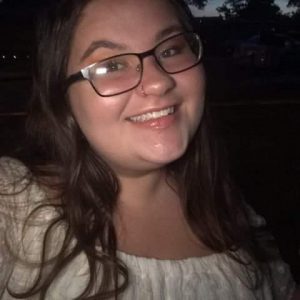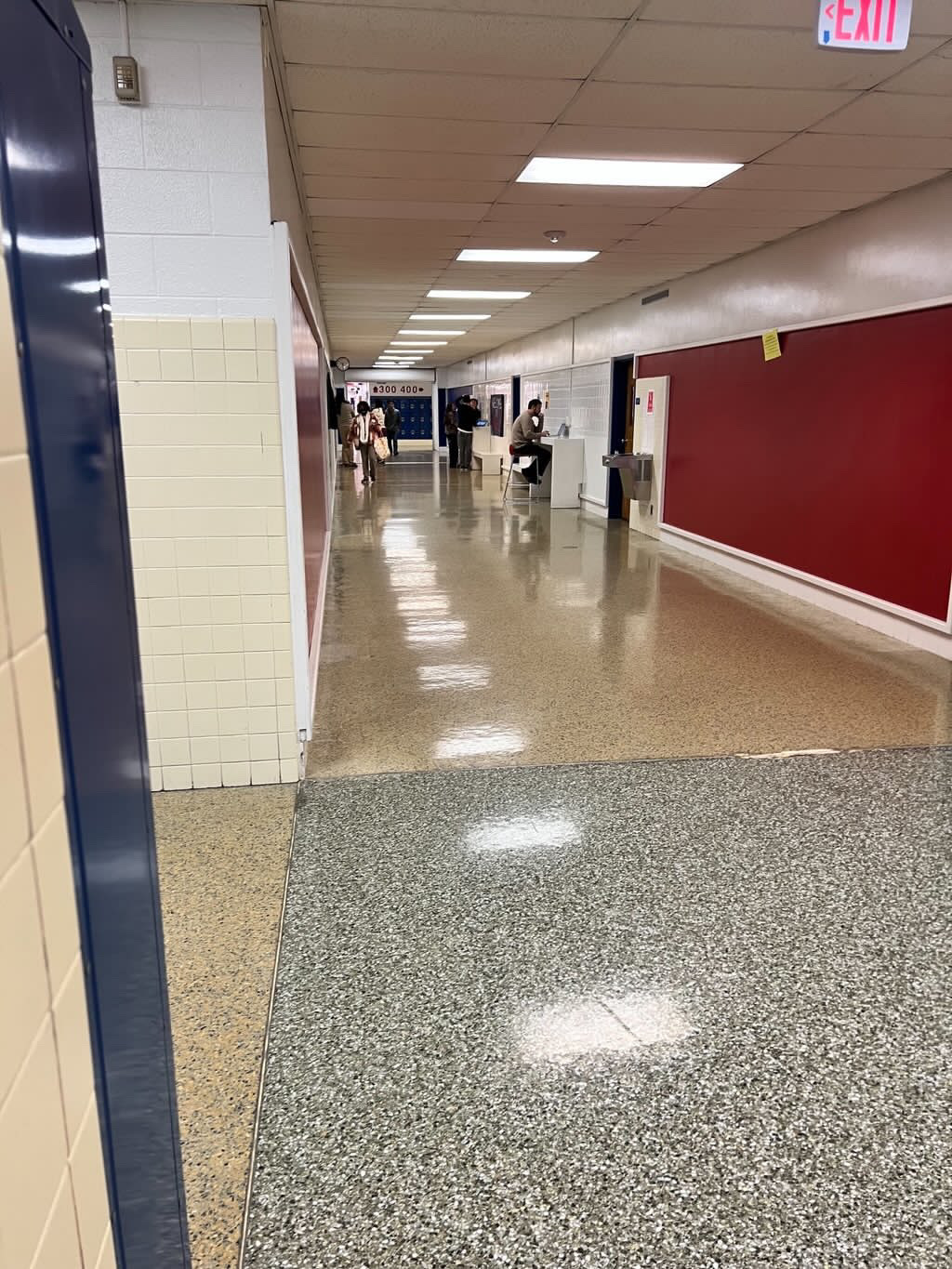BSU Students Share Their Support for the New Equity Policy at VBCPS Board Meeting
Sania Nicole Bagley speaking about racial issues and the equity policy via Google Zoom during the School Board Meeting held on August 11, 2020.
October 5, 2020
Every second and fourth Sunday of each month, Virginia Beach City Public School board members meet to discuss policies, regulations, and updates. Citizens and delegates are welcomed to speak by request through the clerk of the board. Each individual is limited to four minutes of speaking time. The Board of VBCPS represents the people of the community and is the legislative body for the school division. They determine all questions of general policy to be implemented into the conduct of public schools. With regards to policies, VBCPS says, “a policy is a basic written statement of the intent of the School Board, which creates rights and responsibilities for the conduct of the division’s business. It is the obligation of the staff to familiarize themselves with and follow School Board Policies.”
On September 11, a board meeting was held with social distancing, masks, and Google Zoom calls. The meeting partially discussed the equity policy created by members of the Equity Council under LaQuiche R. Parrott, Ed.D., Director of the Office of Opportunity and Achievement. The policy says, “it will define expectations for consideration of racial and social equity, including meaningful stakeholder involvement in planning, developing, and implementing policies, practices and initiatives as well as review by the School Board of the School Division’s efforts to address issues of educational equity. It provides a framework to advance educational equity in alignment with the School Board and the School Division’s visions and priorities.” The full policy can be found on the VBCPS website.
At the meeting, parents, staff, and students were invited to speak and discuss their feelings on the policy. Amongst one of the 60 people who spoke in front of the school board (and also on Zoom) was Sania Nicole Bagley, a senior, who is a member of the Black Student Union at Kempsville High School. During the meeting that can be found online, within the four minutes she was given, Bagley brought up multiple points including wearing a mask, slavery that took place centuries ago, and racist acts she and many others experienced only last year when the BSU was created.
Before Bagley could begin her speech about the equity policy, she addressed the mask argument that lasted for 30 minutes and also how wearing a mask should not be turned into a political topic. “I want to say wholeheartedly and clearly that those of you on the school board that are against wearing masks and turn it into a political topic are the exact reason why I am at home, behind my computer for my senior year; my last year of high school. You are the reason why a child could not enter the building on their first day of kindergarten, [elementary school], middle school, and high school.”
She also touched on the topic of Blacks and Latinos being affected the most by the Coronavirus. “Once again, white privilege never fails but yet minorities suffer to have their lives protected, most importantly their health not protected. So what does that say to those who are ignorant and selfish that wish not to wear a mask? It means to you my life does not matter and black and minority lives do not matter.”
Regarding the equity policy, Bagley stands strongly with it saying, “I am for it. I am going to start with the racism towards the Black Student Union at Kempsville High School, with my friend Carrington Smith, who is the president [of the BSU]. I serve on the executive board with her. When we started this program in 2019, we started the first Black Student Union in the Virginia Beach City Public School district. Before we had our first meeting, we had the time and opportunity to go on the news and tell them about our program. With that, there were death threats thrown to us saying that we were racist and that we were communists. There were pages made by students at our school, who had the KKK in a fire as their profile picture, saying that white lives matter.”
Carrington Smith, a junior, who is president of the Black Student Union also commented on the equity policy saying in an interview, “the policy, to me, was more so paying attention to the needs of the student to make their experience in school worth it. For example, it spoke about how even students who were pregnant can receive their rights to education. My problem with the adults in the building was that instead of focusing on the needs of the children, they decided to be immature and make it a ‘race war.’ That is not what the policy is about. The policy was made to ensure that no matter the situation of the child’s life, whether they are male or female, Black, white, Hispanic, Asian, etc., or even pregnant, they are still able to be this ‘life-long learner’ VBCPS has in their mission statement.”
Bagley’s next point mentioned the history curriculum that is taught, and also not taught, to students throughout their years in school.
“We learned history in school but tell me why I have not once heard the name John Lewis,” Bagley said. For context, John Lewis was an African American Statesman and civil rights leader/activist who served in the United States House of Representatives. He was a part of Georgia’s 5th congressional district from 1987 until his death in 2020.
“We talk about Rosa Parks and how she did not give up her seat. We have a day for Martin Luther King, but what about John Lewis? He died just a few months ago and I still never heard his name until then,” she said. “Confederate monuments are still an issue going on in society. We learned about the Civil War years ago and instilled the confederate monuments that shine bright in my face that are very racist.”
Similar to Bagley, Smith also commented about the warped history saying, “I think we should start to expand on different cultures in [their] correct manner. It’s unfair how all African countries, Asian, or South American countries are labeled poor, yet when you guys go on vacation to Puerto Rico it’s somehow a beautiful place. It’s in a form where patriotism is more important than education which makes a student ignorant. I’m not saying break down the whole history but at least change the narrative.”
The deaths of Ahmaud Arbery, George Floyd, Jacob Blake, and Breonna Taylor were brought up by Bagley when she was informed of the police officer who failed to make eye contact with Smith outside of the board meeting building. Bagley asked, “is her skin color still a weapon to you? Maybe Ahmaud Arbery, Breonna Taylor, George Floyd, and Jacob Blake can answer that question.”
The previous names mentioned were all unarmed, black men and women who were killed by the police.
Bagley’s last point went into depth about Breonna Taylor. “Next to Breonna Taylor and women who are overlooked, no officers have been arrested for the death of Breonna Taylor, and I want to be sent back to a school with officers who have guns on them when I’m scared of my life? What if I fall asleep? Will they shoot me too?”
The speech was concluded by Bagley saying, “moving on, black lives matter, justice for Breonna Taylor, and wear the mask. Thank you.”
There was tension inside the building, but also outside. Arguments took place, which were, “way more interesting than the meeting,” said Smith. “There were many people out there arguing, but the main takeaway for me that night was a group of elementary teachers who said, ‘you people just need to get over it and move on, you are not slaves anymore.’ As educators of elementary school students, I was highly disgusted by their behavior. I was a student too and they felt very comfortable saying that our PTSD, which was never cured from 400 years ago when my ancestors came here on a ship, didn’t matter to be discussed to students as if history can never repeat itself. No, we cannot and will not get over it until you stop enslaving us by withholding knowledge about people who looked like me. This policy was not intended to be a race thing but it seems like racism always finds a way.”
Victoria Manning, a school board member, suggested a substitute motion to defer a vote to send the policy to the monitoring committee to review. She requested a third-party equity audit. The board members voted in favor of the policy, with the superintendent, Dr. Aaron Spence, standing by it. In an article with Wavy13 News, Spence said, “I’m not going to be the person to tell you that your child shouldn’t be able to succeed. I’m going to give you everything you need to be successful.”
Smith said that the experience was eye opening and also concerning, “that some “teachers” were subliminally racist, but I think the outcome was justified [with the equity policy being passed].”
Bagley said in an Instagram post, “the sad thing is that in 2020, people still feel the need that it is necessary to vote on the need of equity, inclusion, and diversity within our school system. Please listen, as these words shine light on current events that are happening within our community.”
Due to activities being online, the BSU is currently doing Zoom meetings with their first meeting taking place the second week of October. Students interested in participating can email Kimberly Nurse ([email protected])









